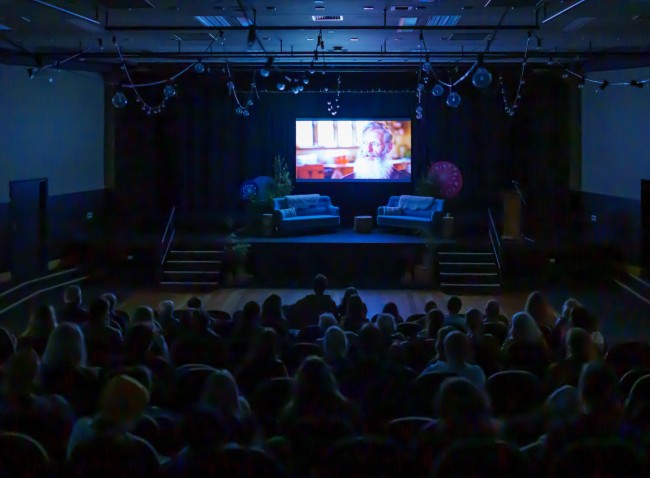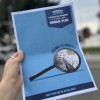
Cromwell audiologist on tuning out tinnitus

Melanie Mackenzie was born and bred in the south and grew up in Cromwell. After travel and study, she returned to Cromwell ten years ago where she lives with her partner, young child and menagerie of animals. She completed her Master of Audiology at Canterbury University in 2009 and has ten years of experience as an audiologist in Central Otago.
Tinnitus. Pronounced tin-it-tis. Noises in your head that you can hear but no one else can. Common sounds include ringing, buzzing, hissing, crickets, rain on the roof. You may question yourself - are you going mad? You may experience fear – do I have a brain tumour? Frustration - why won’t it go away? It can also trigger anxiety and depression, particularly if it affects sleep.
Tinnitus is relatively common in that around one in 10 people hear it from time to time. For most the tinnitus is a minor annoyance, however one in 200 have debilitating tinnitus that affects their daily functioning. The cause of tinnitus is not clear-cut. Tinnitus can be of temporary nature, for example if you went to a noisy party the night before. Some people, through their occupations, may have been exposed to noise, which can lead to hearing loss and tinnitus. Worryingly, younger people are developing tinnitus due to having their devices too loud. Tinnitus can develop for other reasons such as ear wax build up, ear infections, illnesses and some medications can also be linked to tinnitus. Head and neck injuries can also be associated with tinnitus. Some people will experience tinnitus following a significant negative event in their life. Tinnitus does not cause hearing loss, nor does it mean that you have hearing loss because people with normal hearing can experience it.
Unfortunately, tinnitus cannot be medically treated unless it is from a treatable cause such as wax build up, ear infection, or an injury. While there is no cure, one can take control of the tinnitus, so it becomes a minor annoyance. Some management strategies include sound therapy, brain training and better sleep. Hearing aids for those with hearing loss can treat the hearing loss which may also help mask tinnitus. In some cases, cognitive behavioural training (CBT) with a trained counsellor can be beneficial for those who have debilitating tinnitus. For anyone experiencing tinnitus, I would recommend making an appointment to see an audiologist for a full hearing evaluation.
Case study: Debbie Knowles
I have had tinnitus since I was a young child, and I didn’t understand what it was. I lived in a small cul-de-sac in North Yorkshire and when my ears were ringing, I used to think it meant the bus was arriving at the top of the street – I associated it with the bells on the bus! As a teenager, my hearing got worse. School friends were starting to get annoyed when they’d try and get my attention and I couldn’t hear them. My hearing loss is genetic – my mum is also hard of hearing, as is my twin brother, my two elder siblings and two of my nephews. My two nieces have managed to escape from the genetic curse!
I was so reluctant to get hearing aids because of seeing older people with the big, bulky beige devices. As a teen there was not a prayer I’d wear them. Imagine my surprise to be fitted with a rather discreet pair by the NHS. More surprises came when I left the hospital and heard traffic, birds singing, plastic bags rustling – it was extremely weird to hear sounds you never actually realised you couldn’t before!
My NHS pair of hearing aids – while being discreet and invisible unless I wear my hair up - are pretty basic. No Bluetooth, no volume control, but the most important thing is I can hear properly and it’s fantastic.
Melanie was so kind to let me demo a brand-new model – Beltone Serene. Absolute game changer and some serious ear candy! The technology in these is amazing – Bluetooth and volume control via your phone. I was able to answer calls and listen to music through them. Speech was remarkably clearer compared to my NHS pair. However, the one thing that impressed me most was wearing these to a gig in Auckland – I have very sensitive ears and usually loud environments are a no go for me, but at the gig I was right at the front (swooning) next to the speaker and there was no discomfort or sensitivity in my ears.
Hearing aids nowadays are super high-tech, not at all bulky, and they can really make a difference to your daily life and life in general. They can help mask tinnitus for the most part while you’re wearing them, and they enable you to feel more connected to society. If you feel you have tinnitus or some form of hearing loss, I urge you to book an appointment with an audiologist.
You can find out more about Melanie Mackenzie’s hearing services and book an appointment here.
Main image (Supplied): Sleek and high-tech, the Beltone Serene hearing aids have been a 'game changer' for Crux's Debbie Knowles.



























